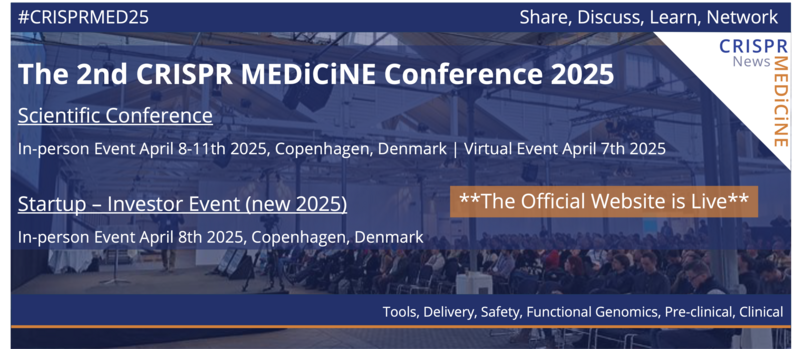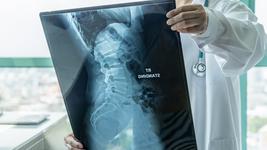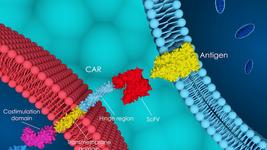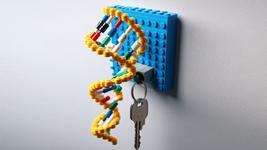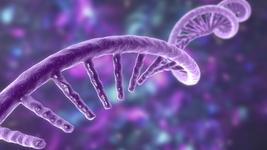CMN Weekly (1 July 2022) - Your Weekly CRISPR Medicine News
By: Karen O'Hanlon Cohrt - Jul. 1, 2022
Top picks
- CRISPR, 10 Years On: Learning to Rewrite the Code of Life. To mark the 10th anniversary of the seminal CRISPR publications that revolutionised the gene-editing field, this New York Times write-up looks at how gene-editing technology has led to innovations in medicine, evolution and agriculture, as well as some of the ethical questions it has raised about altering human DNA.
- As CRISPR Turns 10, Its Medical Promise Comes Into Focus. This piece for Bloomberg looks at the promise of CRISPR to deliver novel therapies and outlines three outstanding challenges in the field that need to be overcome, namely the delivery challenge, the need for a more precise toolkit and affordability.
- What's next for the gene-edited children from CRISPR trial in China? This piece in New Scientist examines the considerations being made by scientists in China concerning how to look after three children who were gene-edited as embryos in He Jiankui’s controversial experiment, which was announced to the world in 2018.
Research & detection
- In an article published in ACS Synthetic Biology this week, a team at University of Winconsin demonstrate the utility of sequentially performed CRISPR knockout screens, whereby an existing library is first used to explore a biological question across the human genome, and then the remaining cells are used to examine each gene candidate against one common gene of interest. They dub their approach "Many vs One" CRISPR screening, and to achieve this, they inserted a modified 7SK promoter in place of the U6 promoter to drive expression of a single guide RNA. Inserting this novel 7SK promoter into the ubiquitously used lentiCRISPRv2 backbone overcomes the need for a substantial increase in CRISPR library coverage during screening, sample processing, and next generation sequencing. The authors report that the new 7SK vector equals the original lentiCRISPRv2 in lentiviral titer, knockout efficiency, and ease of use.
- In a not yet peer-reviewed manuscript shared on Research Square earlier this week, scientists in Portugal report a fast (~40 min), highly sensitive, point-of-care loop-mediated isothermal amplification (LAMP) coupled with a reverse transcription step (RT-LAMP) and CRISPR-Cas12a assay to detect SARS-CoV-2. This fluorescence-based test prevents carry-over contamination using dUTP/UDG and achieved 100% specificity and 93% sensitivity using 25 positive- and 50 negative patient samples. They report a limit of detection of 3 copies/µL, and argue that this will enable the robust, fast detection of the virus in dedicated equipment which is a major step towards population-wide accessible testing.
- In an article published in Journal of Agricultural and Food Chemistry this week, scientists in China present a CRISPR-Cas12a-signaling ARMS-PCR assay, termed cARMS, that is capable of sensitively detecting drug-resistant Salmonella enterica (S. enterica) based on the presence of a single-nucleotide polymorphism (SNP). The authors report that the assay could detect a SNP down to a sensitivity level of ∼0.5%. They used the cARMS assay to investigate the adaptation of SNP-involved drug-resistant S. enterica to salt stress, and found that the mutants exhibited stronger adaptation to salt stress, indicating the potential risk of using high salt content as a sterilisation strategy. The authors argue that their findings verify the feasibility of the cARMS assay in controlling SNP-involved bacteria-associated biosafety.
- In a study that involved Mammoth Biosciences, University of California San Francisco and Abbott, scienists describe the development and validation of a rapid COVID-19 variant DETECTR assay incorporating loop-mediated isothermal amplification (LAMP) followed by CRISPR-Cas12-based identification of single nucleotide polymorphism (SNP) mutations in the SARS-CoV-2 spike (S) gene. This assay targets the L452R, E484K/Q/A, and N501Y mutations, at least one of which is found in nearly all major variants. The authors report that in a comparison of three different Cas12 enzymes, only the newly identified enzyme CasDx1 was able to accurately identify all targeted SNP mutations. The findings were published this week in Journal of Clinical Microbiology.
- Scientists in Saudi Arabia have identified and characterised a thermostable Cas13 enzyme for one-pot detection of SARS-CoV-2. The enzyme is an ortholog of the Cas13a family from the thermophilic organism Thermoclostridium caenicola (TccCas13a), and the authors demonstrate that it possesses robust cis and trans activities at a broad temperature range of 37 to 70 degrees celcius. They harnessed TccCas13a's thermostability to develop a sensitive, robust, rapid, and one-pot assay, named OPTIMA-dx, for SARS-CoV-2 detection and report excellent performance parameters on clinical samples. They also developed a mobile phone application to facilitate OPTIMA-dx data collection and sharing of patient sample results. The findings were published online in PNAS this week.
Clinical
- Intellia Therapeutics and Regeneron Pharmaceuticals present updated interim data from Phase 1 clinical trial of CRISPR-based NTLA-2001 for the treatment of transthyretin (ATTR) amyloidosis, demonstrating that deep serum TTR reductions remained durable after a single dose. The data, which included extended follow-up findings from 15 patients with hereditary ATTR amyloidosis with polyneuropathy (ATTRv-PN) treated across four single-ascending dose cohorts in Part 1 of the study, were presented in an oral presentation at the European Association for the Study of the Liver (EASL) International Liver Congress™ 2022, which took place last week in London. NTLA-2001 was the first in vivo CRISPR therapy to be administered to humans via the bloodstream. It is designed to treat ATTR by selectively reducing the levels of mutated TTR protein in the blood, through CRISPR-based inactivation of the TTR gene in liver cells. Read more about the NTLA-2001 trial here.
Industry
- Paris-based gene-editing company Eligo Bioscience has been granted two foundational U.S. patents covering in-situ base editing of the microbiome, and it has also presented first-ever animal data at the CRISPR 2022 Conference held recently in Boston. According to a company press release, the two new patents cover the unique ability to modify with unprecedented precision the genome of deeply-engrafted resident bacteria without killing them. In particular, it enables targeted and durable modification or inactivation of bacterial proteins from essential commensal bacteria. This approach is expected to address key unmet needs in microbiome-related diseases, by removing bacterial triggers of disease while maintaining commensal bacteria that are essential to our health. At CRISPR 2022, Eligo presented data demonstrating that a single oral dose of a base-editor equipped medicine led to the precise editing of up to 100% of a target bacterial population in the gut of animals in a matter of hours. They also demonstrated that such edits were stable over time.
- Poseida Therapeutics announces a new peer-reviewed publication in Molecular Therapy – Nucleic Acids that highlights the potential of Cas-CLOVER™ as an efficient and robust gene-editing system for developing allogeneic CAR-T products. In these published studies, Cas-CLOVER was used for multiplexed gene editing in resting T cells, which resulted in allogeneic product candidates with a high percentage (45%-70%) of T stem cell memory (Tscm) cells. Using next-generation sequencing, off-target activity was determined to occur at a low rate between 0.012% and 0.089%, while off-target translocations, which are undesirable chromosomal abnormalities, approached the lower limit of detection at a frequency of less than 0.01%. Read the original publication here. You can learn more about Cas-CLOVER and Poseida's approach to developed gene-edited therapeutics in our previous interview with then CEO Eric Ostertag here.
- California-based ReCode Therapeutics, a genetic medicines company using superior delivery to advance novel messenger RNA (mRNA) and gene correction therapeutics has announced plans to expand its next-generation delivery platform and diversify its genetic medicines pipeline with oversubscribed Series B financing to the tune of $200M. The company is working to develop new therapeutics accross several disease areas including the central nervous system, lung, liver, and oncology indications. Its unique first-in-class delivery technology is based on the selective organ targeting (SORT) lipid nanoparticle technology (LNP) platform, which was pioneered by co-founder Professor Daniel J. Siegwart, Ph.D., of the University of Texas. You can read more about the SORT technology in our previous interview with Daniel Siegwart here.
- ERS Genomics licenses CRISPR technology to Swiss gene-editing firm Cytosurge. The non-exclusive licensing agreement will grant Cytosurge access to ERS' CRISPR-Cas9 patent portfolio.
- Precision BioSciences, a clinical-stage gene-editing company developing ARCUS-based ex vivo allogeneic CAR-T and in vivo gene-editing therapies, announced earlier this week the closing of an underwritten offering of 35,971,224 shares of its common stock at an offering price of $1.39 per share, for total gross proceeds of approximately $50 million, before deducting underwriting discounts and commissions and offering expenses payable by the company. Precision intends to use the net proceeds of the offering to help fund ongoing and planned research and development, and for working capital and general corporate purposes. Read more about Precision's portfolio in our earlier coverage here.
- Fate Therapeutics announced earlier this week that is will expand its solid tumour collaboration with ONO Pharmaceutical for off-the-shelf, iPSC-derived CAR-natural killer (NK) and CAR T-cell cancer immunotherapies. Fate Therapeutics' immuno-oncology pipeline includes a number of off-the-shelf, gene-edited iPSC-derived cell product candidates, which are designed to synergise with existing cancer therapies and to target tumour-associated antigens using CARs. You can find details of the company's ongoing gene-editing clinical trials here.
- Beam Therapeutics has presented the first research findings highlighting its approach to developing non-genotoxic conditioning regimens for sickle cell disease (SCD) patients ahead of autologous transplant, at the Federation of American Societies for Experimental Biology (FASEB) Genome Engineering Conference held earlier this week in Portugal. Late last year, Beam became was the first company to get approval to run a clinical trial for a base-editing candidate, and it expects to begin patient enrollment for the BEAM-101 trial for SCD during the second half of this year.
Reviews
- Cell-derived extracellular vesicles for CRISPR/Cas9 delivery: engineering strategies for cargo packaging and loading. This review provides an overview of the fundamental mechanisms of extracellular vesicles (EVs) from the aspects of biogenesis, trafficking, cargo delivery, and function as nanotherapeutic agents. The authors summarise the latest trends in EV-based CRISPR-Cas delivery systems and discuss their prospects for future development. In particular, they focus on state-of-the-art engineering strategies to realise efficient cargo packaging and loading, and aruge that EVs hold promise in bridging genome editing in the laboratory and clinical applications of gene therapies by providing a safe, effective, and targeted delivery vehicle.
- Treatment of metabolic disorders using genomic technologies: Lessons from MMA. The authors, who are based at the National Human Genome Research Institute (U.S. NIH) review pre-clinical studies that present alternative approaches to solid organ transplantation as a treatment for methylmalonyl-CoA mutase (MMUT) hereditary methylmalonic acidemia (MMA), including AAV gene addition therapy, mRNA therapy, and genome editing, with and without nuclease enhancement.
News from CRISPR Medicine News
- For this week's feature, we spoke with Associate Professor Bingyang Shi, who leads an advanced brain drug delivery group at Macquarie University in Sydney, Australia. His team recently reported extended survival times and inhibited growth of patient-derived glioblastoma brain tumours in mice with CRISPR-Cas9 mediated knockout of the PLK1 gene. The team developed nanocapsules that were were chemically functionalised to penetrate the blood-brain barrier, target tumours and release the gene-editing molecules specifically in cancer cells. Read the interview here.
To get more of the CRISPR Medicine News delivered to your inbox, sign up to the free weekly CMN Newsletter here.
Tags
CLINICAL TRIALS
IND Enabling
Phase I
Phase II
Phase III
IND Enabling
Phase I
Phase II
Phase III
Amyotrophic Lateral Sclerosis, ALS, or Frontotemporal Dementia FTD, (NCT04931862)
Sponsors:
Wave Life Sciences Ltd.
Sponsors:
Wave Life Sciences Ltd.
IND Enabling
Phase I
Phase II
Phase III
